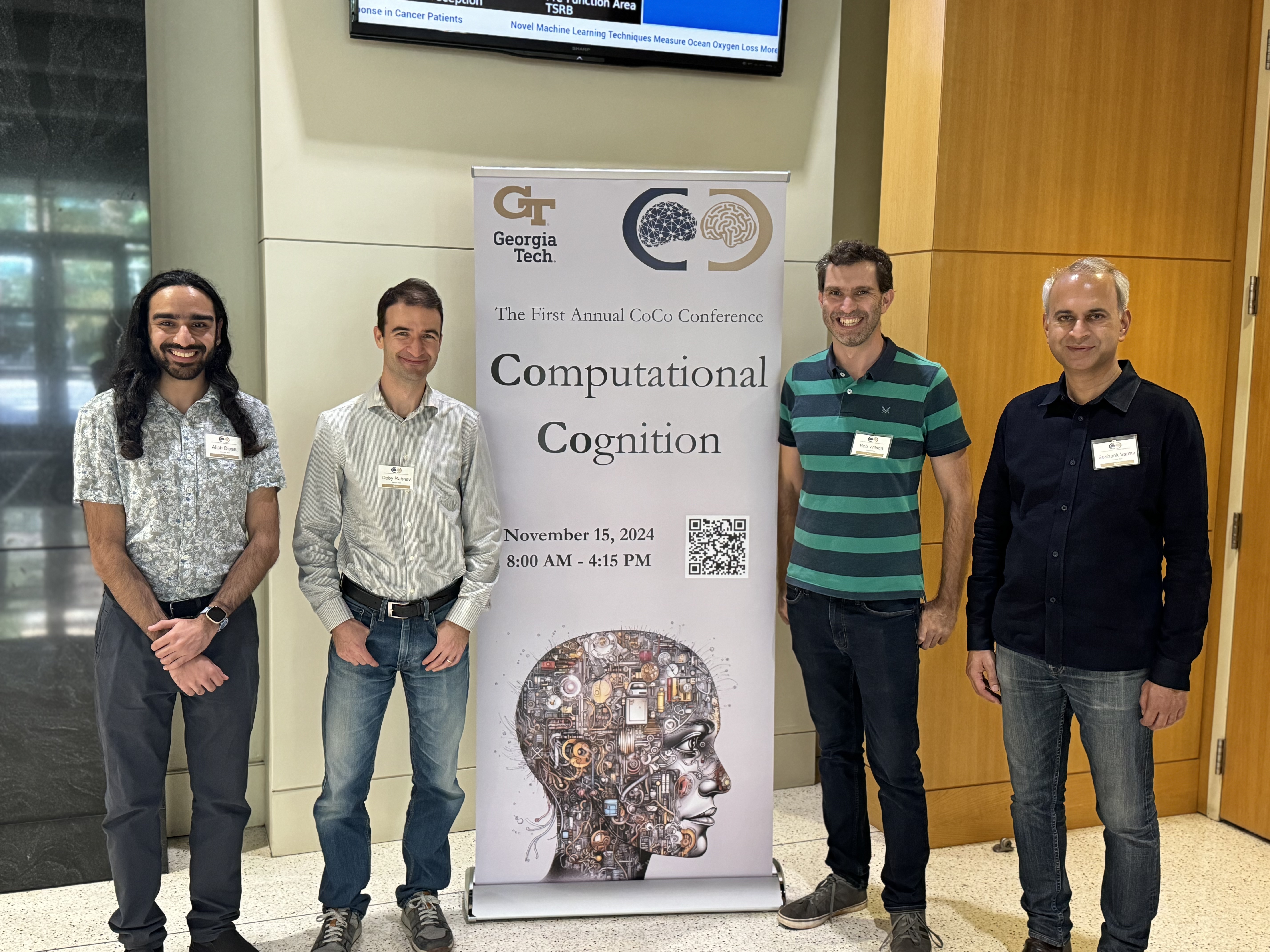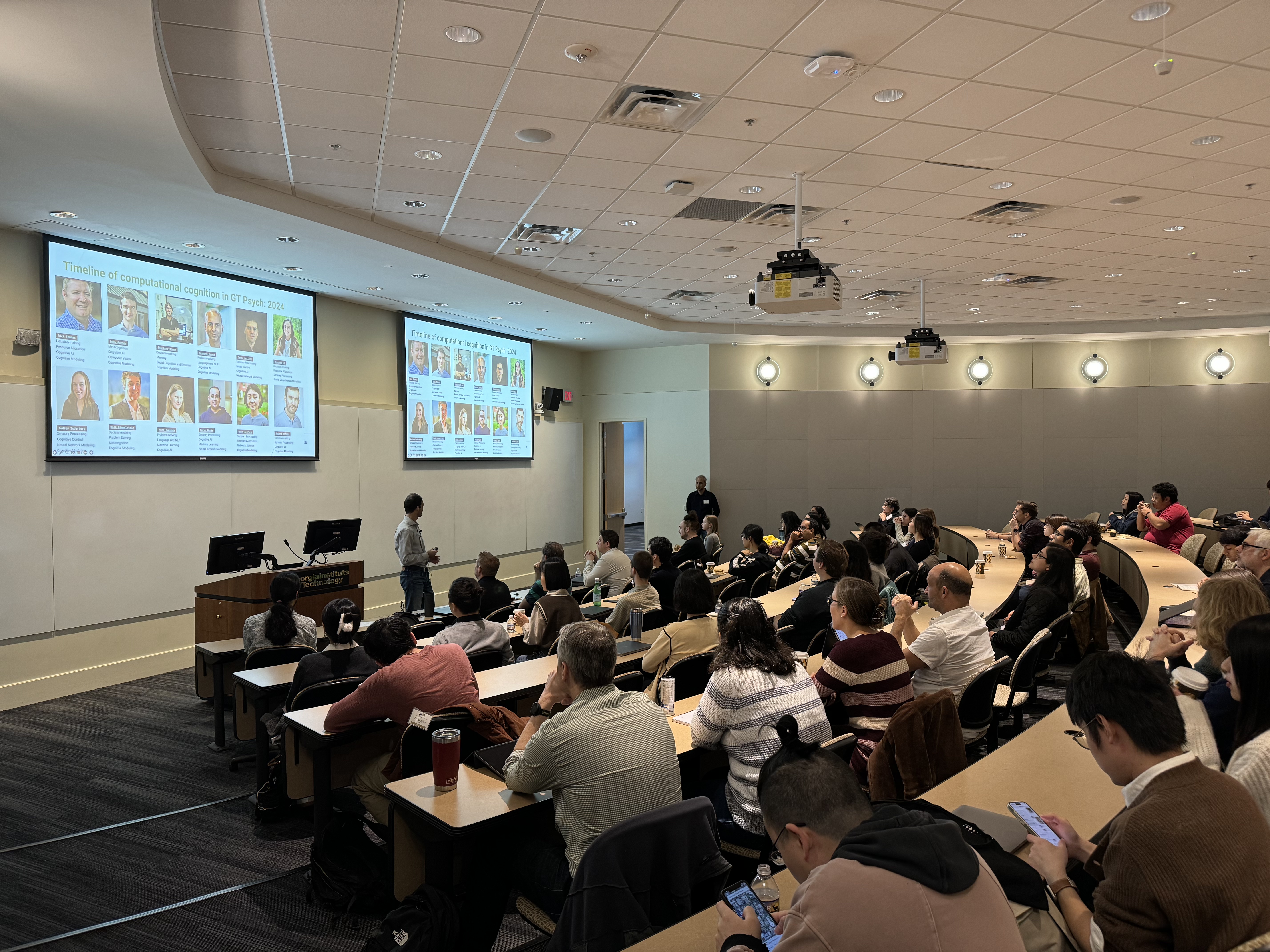The human brain is often seen as the world's most complex computer, processing vast amounts of information, learning from experiences, and making complex decisions. Georgia Tech’s Center of Excellence in Computational Cognition (CoCo) was established in 2023 to better understand this “biological computer” using the principles of computation and mathematics.
“Research on computational cognition leads to a deep, mechanistic understanding of the human mind. It also teaches us how to build more robust and generalizable AI,” says Doby Rahnev, a professor in the School of Psychology and the Center’s founding director. “CoCo aims to bring together researchers from Georgia Tech, Atlanta, the Southeast, and beyond to advance this field.”
The Center recently hosted its first annual Computational Cognition Conference, gathering over 100 Atlanta-area researchers to explore cutting-edge work in computation, perception, decision-making, and more.
A Growing Field
Computational cognition as a field merges psychology, neuroscience, artificial intelligence, and machine learning to understand how our brains work. By creating sophisticated models and simulations, researchers are not only uncovering the secrets of cognition but also paving the way for advancements in AI and technology.
“If you go back just five years, there were only three faculty in the School of Psychology working in computational cognition,” said Rahnev. Now, with over a dozen faculty working in the area, a new minor in Computation and Cognition, and the establishment of CoCo, “Computational cognition has gone from something that barely existed in the School to something that is a recognized strength.”
CoCo was created as a Center of Excellence in the School of Psychology. Since its founding, it has been supported by the College of Sciences and the Neuro Next Initiative, the precursor to Georgia Tech’s burgeoning Interdisciplinary Research Institute on neuroscience, neurotechnology, and society.
Held on Nov. 15, the Center’s inaugural conference connected students and faculty from across Atlanta, featuring over 25 lightning talks by faculty from Georgia Tech and Emory University on a wide range of topics.
“This was a special moment for me and everyone else involved,” said Rahnev, who worked with psychology Professor Sashank Varma and inaugural CoCo graduate fellow Alish Dipani to organize the event. “This conference felt like a coming-of-age event and made it clear that there is a very large community of people working on this topic right here in Atlanta.”
Though Rahnev recently stepped down as the Center’s director after his appointment as the School of Psychology’s associate chair for Research, he says, “The future is bright for CoCo.”
“Exciting things are happening at Georgia Tech,” said newly appointed CoCo Director Bob Wilson, an associate professor in psychology. “In the last few years, there's been a hiring spree bringing in experts in computation and cognition across psychology, biology, BME, interactive computing, and beyond. Combined with Georgia Tech’s already established excellence in computation and tech, this offers a unique environment where computational approaches are encouraged, and synergies and collaborations between people can grow.”
For More Information Contact
Audra Davidson
Research Communications Program Manager
Neuro Next Initiative




